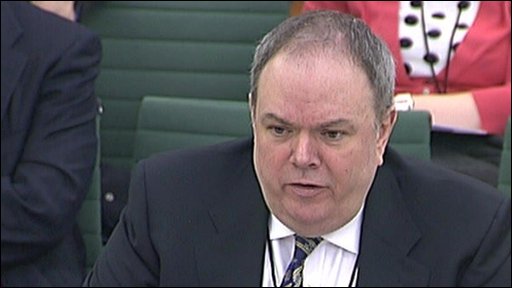Prime Minister David Cameron's mission to privatize everything we once owned continues with Bernard Gray's secret plans to privatize the Ministry of Defence.
I don't think there are many people who cannot understand that handing over our national defense to a company with foreign interests is national suicide.
That is, unless you are Bernard Gray, director of defense materiel in the department's defense equipment support division.
While serving as an adviser to the Ministry of Defense in 2009, Gray presided over a defense procurement review that strongly recommended the privatization of the defense equipment and support sector through the creation of so-called Go-Co partnerships.
Go-Co entities are typically government facilities operated by the private sector, such as those used in nuclear weapons facilities, including the involvement of notorious companies such as Lockheed Martin and Serco, where contractors access sensitive military information. You will be able to access it.
Gray served as special adviser to the Secretary of Defense from 1997 to 1999, during which time he delivered an initial report, the Strategic Defense Review, which emphasized the need to “modernize” the military.
However, in late 2009, his report to Congress recommending privatization of the DE&S sector led to his appointment as Secretary of Defense Materiel in December 2010.
In 2011, the Ministry of Defense announced that Bernard Gray would be in charge of the branch's finance division. Few will be surprised to learn that Mr. Gray has ties to Bankers Trust and Chase Manhatten and has a long history of working in the banking industry.
Is it a coincidence that a man with banking experience who had been proposing the privatization of DE&S for some time suddenly became the newly empowered head of the account processing department?
It seems his ambitions don't end with DE&S. Following the new proposals, Mr Gray is understood to have identified three further options for the privatization of the Abbey Wood facility in Filton, Bristol, the country's largest MoD center employing around 10,000 people. There is.
This includes the creation of an “independent authority” to run the £14bn procurement programme, which will be run by external contractors with the ability to make purchasing decisions without ministerial approval, and will be run by a semi-private business. It will be operated as. It is unclear what parts of the service will be made private, but it is inconceivable to imagine defense programs being privatized, or even programs that handle finance being privatized and kept secret from any public scrutiny. There shouldn't be any.
The companies participating in the negotiations are US-based Bechtel and Fluor, Swiss cooperative KPMG, and British company BAE Systems. BAE Systems owns Filton Airfield and is already a prominent supplier to the Ministry of Defence, so there is no conflict of interest. And, of course, that includes Deloitte. , Selco.
Minister for Defense Equipment Support and Technology, Peter Ruff, spoke about the reorganization in a BBC Radio 4 documentary in December 2011:
We're going to work as thoroughly as necessary to achieve the changes needed to improve organizational performance, and I think that includes greater engagement with the private sector in some way.
The privatization of the Ministry of Defense is certainly radical, some might say it's stupid, and some might say it's completely insane. When private companies take control of the department, our defense becomes a purely profit issue, and our military is used as an agent to serve the interests of foreign companies at worst and commercial organizations at best. None of that is in the interest of peace or defense.


